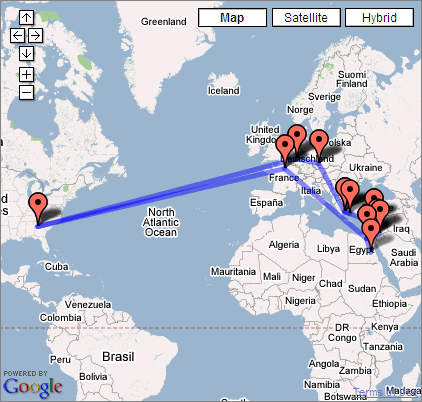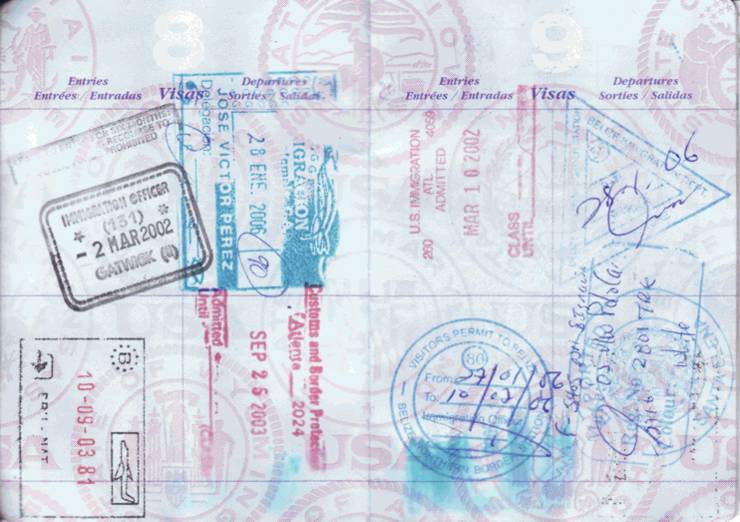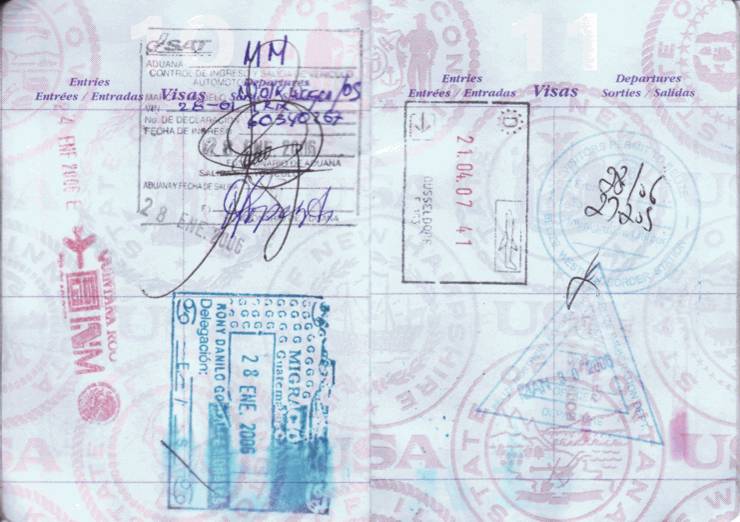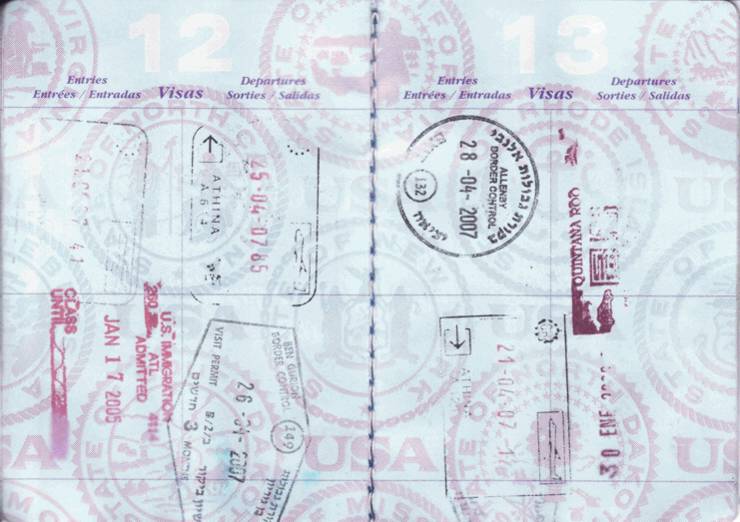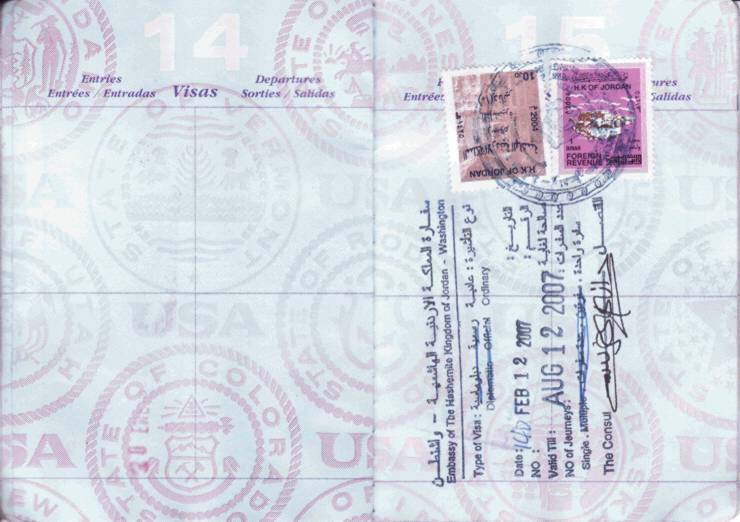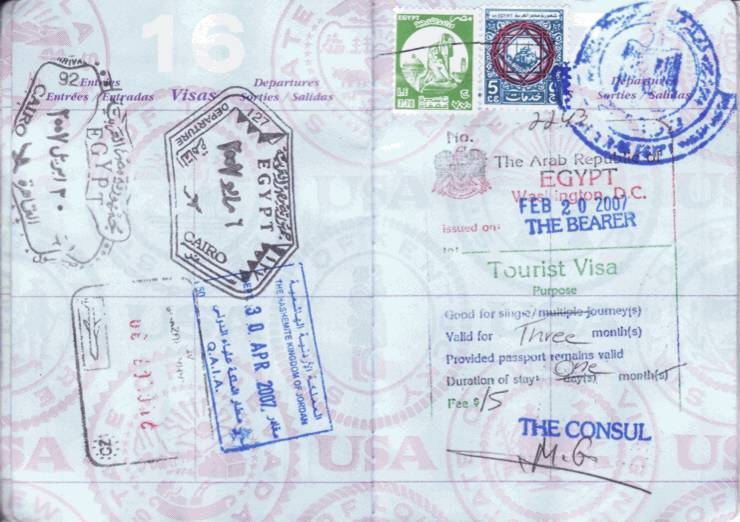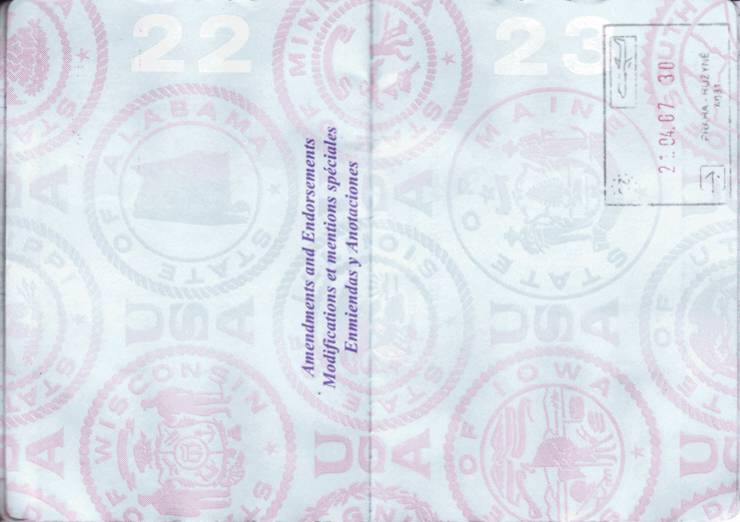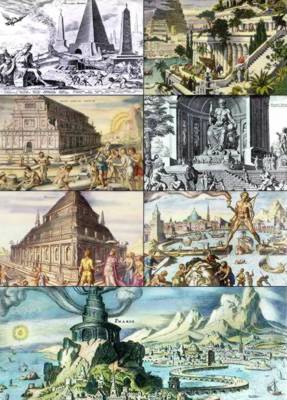Greece, Israel, Jordan, Egypt
| 20 | κʹ | |||
| 21 | καʹ | |||
| 22 | κβʹ | |||
| 23 | κγʹ | |||
| 24 | κδʹ | |||
| 25 | κεʹ | |||
| 26 | ח׳ | |||
| 27 | ט׳ | |||
| 28 | ١٠ | |||
| 29 | ١١ | |||
| 30 | ١٢ | |||
| 1 | ١٣ | |||
| 2 | ١٤ | |||
| 3 | ١٥ | |||
| 4 | ١٦ | |||
| 5 | ١٧ | |||
| 6 | ١٨ |
| Day by Day |
Once you have traveled, the voyage never ends, but is played out over and over again in the quietest chambers. The mind can never break off from the journey. – Pat Conroy |
| BusinessElite Greek Mykonos | |||||
|
|||||
| I travel
not to go anywhere, but to go. I travel for travel's sake. The great affair is to move. – Robert Louis Stevenson |
|||||
| Sunday Morning in Mykonos Delos Santorini Scooting to Oia Dinner in Ammoudi |
|||||
|
|||||
| Bizarre travel plans are dancing lessons from God. – Kurt Vonnegut |
|||||
| Morning in Oia Afternoon in Fira Evening in Iraklio | |||||
|
|||||
| Our happiest moments as tourists always seem to come
when we stumble upon one thing while in pursuit of something else. – Lawrence Block |
|||||
| The Smart Car Knossos and Phaestos Gortyna ... And the Rest | |||||
|
|||||
| All journeys have secret destinations of which the traveler is unaware. – Martin Buber |
|||||
| Piraeus The Acropolis Terrorism Greece Israel | |||||
|
|||||
| A life lived in fear is a life half lived. – Spanish proverb |
|||||
| I Love This Hotel ... ... And I Love Jerusalem! | |||||
|
|||||
| There is no moment of delight in any pilgrimage like the beginning of it. – Charles Dudley Warner |
|||||
| The Western Wall Tunnels Yad Vashem The Old City | |||||
|
|||||
| The World is a book, and those who do not travel read only a page. – St. Augustine |
|||||
| The Most Difficult Border Crossing The Hashemite Kingdom of Jordan Arabic Driving Down to the Dead Sea Taybet Zaman |
|||||
|
|||||
| If you reject the food, ignore the customs, fear the religion and avoid the people, you might better stay at home. – James Michener |
|||||
| A Rose-Red City Half as Old as Time Leaving the Taybet Zaman Petra The Desert Camp |
|||||
|
|||||
| Without new experiences, something inside of us sleeps. The sleeper must awaken. – Frank Herbert |
|||||
| Wadi Rum The Desert Highway To Egypt | |||||
|
|||||
| Travel is glamorous only in retrospect. – Paul Theroux |
|||||
| Getting our Bearings The Temple at Karnak The Temple at Luxor | |||||
|
|||||
| Traveling is almost like talking with men of other centuries. – René Descartes |
|||||
| The West Bank by Balloon The West Bank by Taxi The Nile by Train | |||||
|
|||||
| One’s destination is never a place, but a new way of seeing things. – Henry Miller |
|||||
| Aswan Elephantine Island Train to Cairo | |||||
|
|||||
| A journey is like marriage. The certain way to be wrong is to think you control it. – John Steinbeck |
|||||
| The Pyramid Fields Cairo The Windsor Hotel | |||||
|
|||||
| Travel is more than the seeing of sights; it is a change that goes on, deep and permanent, in the ideas of living. – Miriam Beard |
|||||
| The Egyptian Museum Sultan Hassan Mosque Sufi Dance Demonstration | |||||
|
|||||
| Don't tell me how educated you are, tell me how much you traveled. – Muhammad |
|||||
| Home Sweet Home | |||||
|
|||||
| The whole object of travel is not to set foot on foreign land; it is at last to set foot on one's own country as a foreign land. – G.K. Chesterton |
|||||
| Frequently Asked Questions |
Why did it take you four times as long to finish this report as it took to go on the vacation?
Because it's a work of genius!
Obviously, I didn't just throw together some pictures and captions; you can essentially relive the trip by reading this report. And if you're one of the (let's say) half who actually read the text, you'll be rewarded with some cool trivia: You'll understand golden rectangles and why they make the Parthenon beautiful; you'll see the Skokoe notation of American Sign Language; you'll discover the teachings of a group that believes Jerusalem was born of an incestuous union of seven planets with their mother; you'll find out why seals and armadillos are considered "rapacious beasts of the dog kind." You don't get this on Flickr.
Also, while most of my research comes before the trip, invariably I see places and things on the journey that require further investigation upon my return. It is in the trip report that I assemble all of this information into a coherent record of the things I've seen and the places I've visited.
And why bother with all that crap when we'd just like to see some pictures and captions?
I didn't make it for you! (That's from the Rocky Horror Picture Show, by the way.) I want this record so I can relive the experience. I'll come back to this site dozens of times and re-read and re-live this incredible trip.
Are all of the photographs your own pictures?
Yup.
What are those colored boxes with foreign words?
It's so you can see the names of things, both in English and in the local language (or, in some cases, the historical language). When I started, I thought I was only going to need a handful of languages, but it got crazy, with Italian names showing up in Greece, Latin all over the place, and, of course, the dominant languages in all the places we went.
The abbreviation before the box is the two-letter ISO 639-1 code for the language (or, in the case of more obscure languages, the three-letter ISO 639-2 code; this means you, Egyptian). Also, if the non-English word was not a cognate, and the language was not written in the Latin alphabet, I often put the transliteration in the non-English format as well. Following are all of the languages used:
EN English
EN Greek EL Ελληνικά EL Εlliniká
EN Turkish TR Türkçe
EN Hebrew HE עברית HE ivrit
EN Arabic AR العربية AR al-‘arabiyyah
EN German DE Deutsch
EN Czech CS čeština
EN Italian IT Italiano
EN Latin LA Lingua Latina
EN French FR Français
EN Egyptian EGY EGY r n km.t
Why did you call the trip "3 Continents"?
I thought it was cool that our trip took us to three continents (Europe, Asia, and Africa), and I couldn't think of any other unifying theme.
Why did you take so many pictures of toilets?
Don't be afraid of toilets. Someday you might even need to use one.
Anyway, I only took six pictures of toilets (you'll have to read through to find out why I considered them interesting):
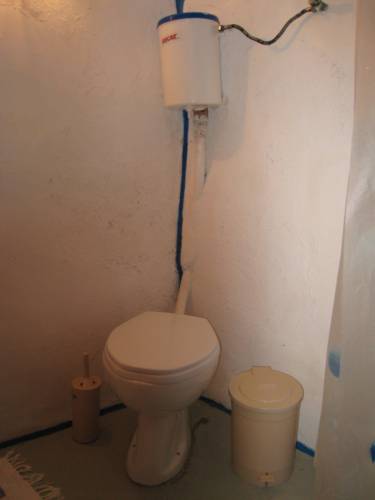
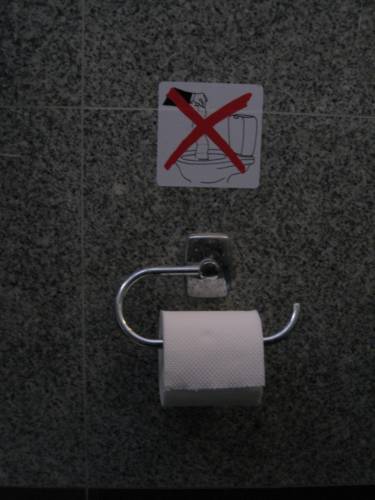
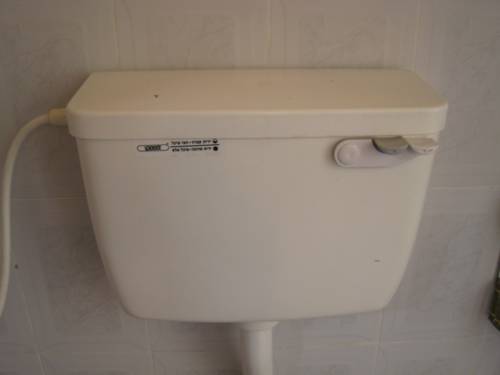
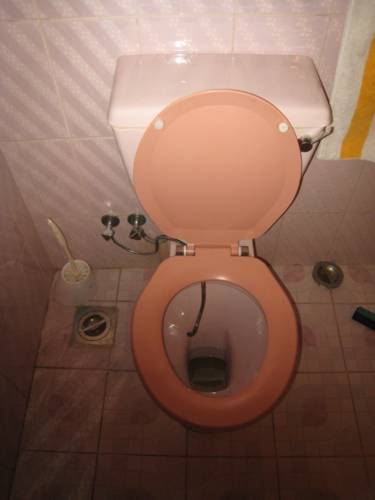
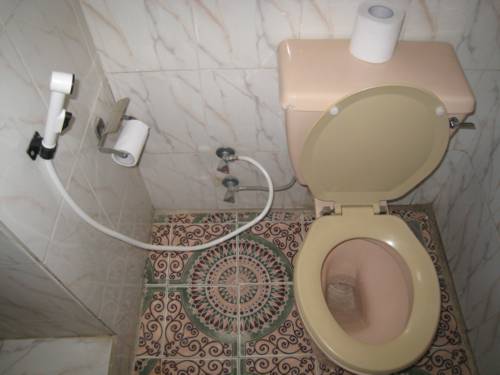
And keys?
I knew from previous trips that hotel keys and keychains are often quite beautiful and interesting in Europe, and I assumed (correctly) that the same was true for the Middle East. So as I was imagining the trip report, I thought I would use the photos of the keys in the header for each day, and I diligently took photographs of them.
But it didn't work out: Some of the keys were attractive, but others were ordinary. And some days we didn't have keys at all (like the desert camp and the train to Cairo). And I didn't know what to do with the vehicle keys and the locker keys and the extra key we got in Aswan because the toilet (picture #5 above) blew a gasket in the middle of the night. In the end, I kept all these pictures in the report, but I didn't use them as a design element.
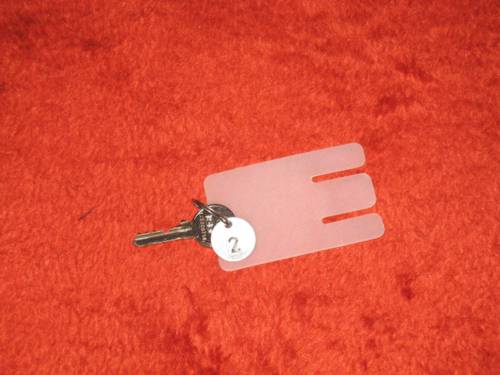
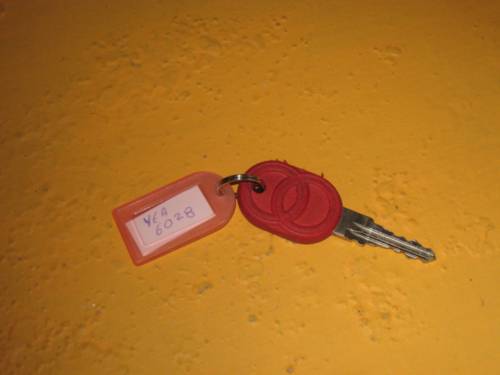
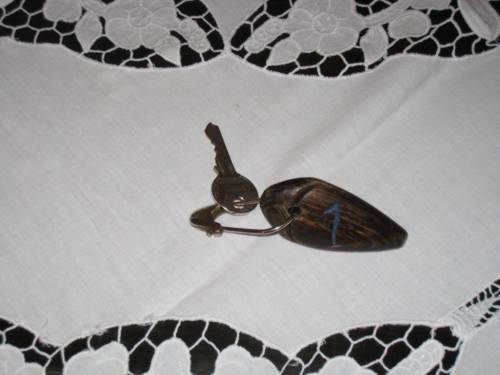
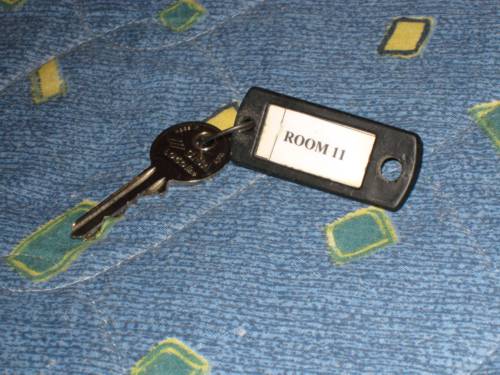
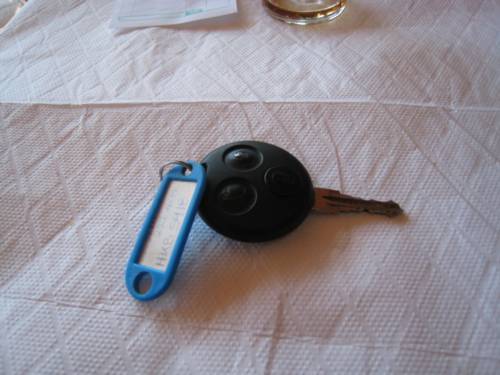
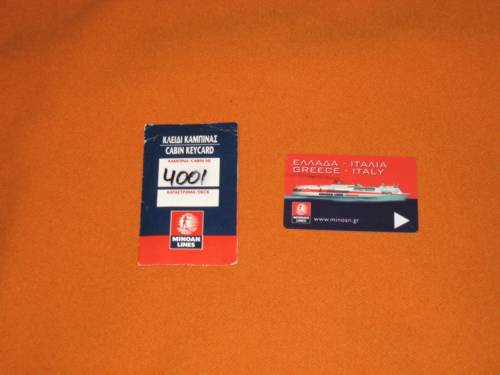
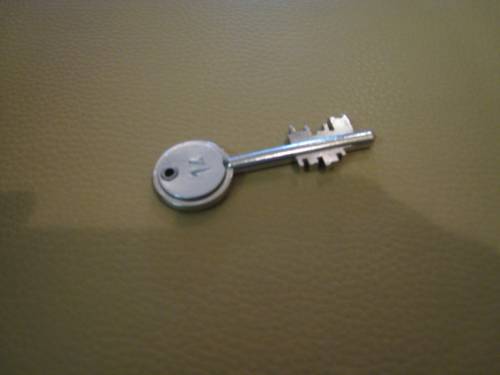
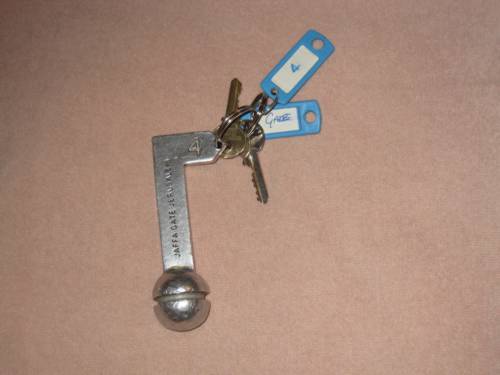
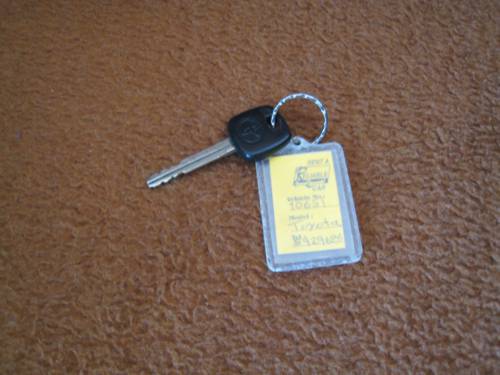
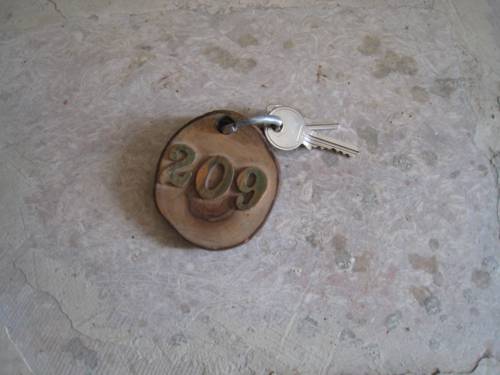
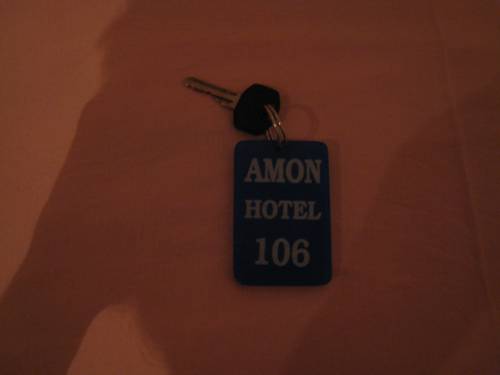
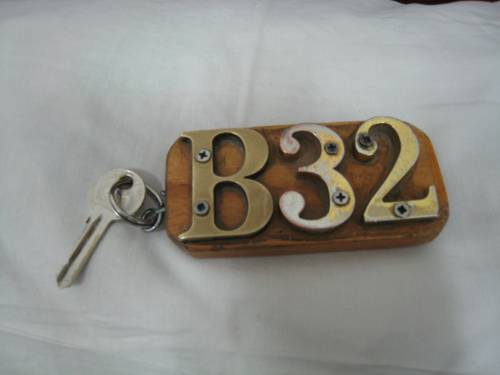

Ten flights! What about carbon offsets?
What kind of jerk do you think I am? Of course I bought carbon dioxide offsets! (We don't want to offset carbon; it's what we're made of.)
According to the TerraPass trip calculator, Billy and I together traveled about 27,344 miles (13,672 each; see map below), representing a combined responsibility for 587 gallons of fuel and 11,477 lbs. of CO2. I purchased offsets for 15,000 lbs. of CO2 ($69.95), allowing a little buffer for our car, train, and ferry travels.
I'm not a big fan of paying to pollute – but I'm not prepared to sacrifice travel. So carbon dioxide offsets are the best available solution.
Did you have enough time to see things?
Yes – the trip went flawlessly. Every transportation vehicle ran either spot on time or with minimal delay. And the time that I budgeted to see things satisfied our goals without a need to drop items from the itinerary or (in our view) rush through them.
Jerusalem needed more time than we gave it, but we knew from the start that our time there wouldn't allow a full exploration of the city. This was a conscious decision in the trip planning stage.
Most people wouldn't enjoy the hectic schedule that Billy and I relish – but it worked splendidly. One thing I will acknowledge, though, is that I wish I had budgeted some time just to reflect on the things we had seen. When every single day introduces you to a new, amazing place that you've heard and dreamed about all your life, it is mentally exhausting to move on to the next place without having some down time to meditate on the incredible experience of the previous day. I finally got that opportunity for reflection once I was back home in Atlanta – and my sense of awe and satisfaction did not suffer. But during the trip I felt like the travel equivalent of Mr. Creosote in Monty Python's The Meaning of Life, stuffing down just one more wafer-thin mint every day.
How was the culture?
Greece was indistinguishable from the rest of Europe, so we didn't hit any cultural issues until we got to the Middle East.
I really enjoyed the opportunity to be immersed in an Islamic culture. And my meager skills in Arabic were definitely well received. But I preferred cosmopolitan environments, and found it much easier to enjoy the Muslim culture in Jerusalem and Cairo (both worldly and sophisticated cities) than in Luxor (which appeared much more provincial and fundamentalist).
The real cultural frustrations, though, were haggling and
EN baksheesh AR بخشش :
- Haggling: I had some experience with haggling in Central America – but it was at a whole new level in the Middle East: Beginning in Jerusalem, every commodity had a negotiable price. And it drove me crazy for several reasons:
- I had absolutely no frame of reference for the things I wanted to spend money on: How was I to know what a taxi ride to Yad Vashem should cost, when I don't know (1) how far it is, (2) how long it will take, (3) what gas costs in Israel, (4) how much you can realistically buy for a sheqel, (5) how long I'd have to wait for another cab if I couldn't strike a deal with the first, and (6) what others have paid for the same trip in the past.
- It's tedious negotiating every single thing – sometimes with the same people for the same thing: "That taxi ride to Midan Hussein may have been LE 5 yesterday, but traffic may be worse today, so let's make it LE 10."
- I end up spending 20 minutes to get a price reduced by LE 15, simply because I don't want to be viewed as a chump. But LE 15 is $2.64, and when I'm spending thousands of dollars on the trip, who really cares. Not to mention the fact that time is precious.
- Baksheesh: Haggling I could handle, but baksheesh was the bane of my existence. Basically, the word means "gift," and can be equated, depending on circumstance, with the English words "tip," "alms," and "bribe." It's easy to make a decision about whether to give baksheesh if it's clearly in one of these camps – but there are huge gray middle grounds: An attendant at a historical site will expect baksheesh just for doing the job of letting you in (not entirely without justification considering the wage), but will let you take forbidden photos in the expectation of more baksheesh. (I didn't do this, despite many opportunities.) And very, very few people are like beggars in America – offering nothing in return. Instead, they will offer some meaningless service, like moving a suitcase that you weren't having any trouble with, or taking an unwanted picture of you with your own camera. First, these things are intrusive and make you worry about theft – until you have been in the Middle East long enough to realize that no one is going to steal from you (only try to talk you out of your money). And second, they are undesired services. But as soon as the intrusion is over, the hand comes out for baksheesh. My very first experience of it was in a public restroom in the Cairo airport when we had just arrived on our first day in Egypt: I had just finished washing my hands, and was reaching up to push the button on the hand dryer. Before I could do so, another person in line for the toilet – who was dressed as well as I was and who was simply standing in line – pushed the button for me, and then put out his hand, saying "baksheesh?" And to make matters worse, if you offer baksheesh, the person is more likely than not to argue that you should give more – often much more. It's not that they really think the first offer was insulting; it's just that they want to talk you out of as much as possible.
What types of transportation did you use?
- bus (Atlanta, Jerusalem, West Bank-Jordan),
- subway (Atlanta, Athens, Cairo),
- automated tram (Atlanta),
- airplane (Atlanta-Düsseldorf, Düsseldorf-Prague, Prague-Athens, Athens-Mykonos, Athens-Larnaca, Larnaca-Tel Aviv, Amman-Cairo, Cairo-Luxor, Cairo-Paris, Paris-Atlanta),
- airport tram (Düsseldorf, Prague, Athens, Larnaca, Amman, Cairo, Luxor),
- taxi (Mykonos, Jerusalem, West Bank, Luxor, Aswan, Cairo, Atlanta),
- hydrofoil (Mykonos-Santorini, Santorini-Iraklio),
- scooters (Santorini),
- cable car (Fira),
- donkey (Fira, Petra),
- rental car (Crete, Jordan),
- ferry (Iraklio-Pireaus, Luxor),
- moving sidewalk (Tel Aviv),
- sherut (Jerusalem),
- swimming (Jordan [Dead Sea]),
- horse-drawn cart (Petra),
- camel (Petra),
- private boat (Luxor),
- calèche (Luxor),
- hot-air balloon (Luxor),
- train (Luxor-Aswan, Aswan-Cairo),
- felucca (Aswan),
- elevator (Düsseldorf, Prague, Knossos Palace ferry, Cairo)
- escalator (Atlanta, Düsseldorf, Prague, Athens, Knossos Palace ferry), and, of course,
- our own two feet (everywhere).
Did you get a lot of stamps in your passport?
Did I ever! And better than passport stamps, I got two visas in my passport for this trip – the first visas of my life! Below are all the stamps (gray italics are old; bold white are from this trip).
Entrance into
United Kingdom
↓
Entrance into
Guatemala
↓Entrance into
the USA
↓
Exit from
Belize (Western Border)
↓↑
Entrance into
Belgium↑
Entrance into
the USA↑
Entrance into
Belize (Northern Border)↑
(1)
Import of rental car into
Belize
(rectangular stamp)
(2)
Export of rental car from
Belize
(circular stamp)Entrance into
Mexico (Canún Airport)
↓(1)
Import of rental car into
Guatemala
(top date stamp, handwritten information, and signature)
(2)
Export of rental car from
Guatemala
(bottom date stamp and signature)
↓Entrance into
Germany
↓Entrance into
Belize (Western Border)
↓↑
Exit from
Guatemala↑
Exit from
Belize (Northern Border)Exit from
Germany
↓Exit from
Greece
↓Exit from
Israel
↓Entrance into
Mexico (Belize Border)
↓↑
Entrance into
the USA↑
Entrance into
Israel↑
Entrance into
GreeceVisa for
Jordan
↓Entrance into
Egypt
↓Exit from
Egypt
↓Visa for
Egypt
↓↑
Exit from
the Czech Republic↑
Exit from
JordanEntrance into
the Czech Republic
(page 23 – WTF?)
↓
What World Heritage Sites did you see?
I put this near the bottom because no one cares but me. (It's not really a frequently asked question at all.)
These are the names as inscribed on the World Heritage List:
- Delos;
- Acropolis, Athens;
- Old City of Jerusalem and its Walls;
- Petra;
- Ancient Thebes with its Necropolis;
- Memphis and its Necropolis – the Pyramid Fields from Giza to Dahshur; and
- Historic Cairo.
And the New7Wonders?
This is probably going to get more interest than the World Heritage Sites, but I put it last because it doesn't deserve it.
First, let's get one thing straight: A lot of people think the New7Wonders list is ridiculous. And almost everyone thinks lists like the Seven Wonders of ... Illinois, Scotland, Africa, Hyderabad, Maine, the West, and Winnipeg (to scan the first two pages of a Google search; shall I go on?) are the essence of absurdity – including, probably, most of the people in Illinois, Scotland, Africa, Hyderabad, Maine, the West, and Winnipeg.
But here's the thing that is so often forgotten: The original seven wonders weren't any better.
EN Herodotus EL Ἡρόδοτος of Halicarnassus andEN Callimachus EL Καλλίμαχος of Cyrene both prepared lists – lost lost – of seven wonders, which may or may not have included the places referenced byEN Antipater EL Ἀντίπατρος of Sidon in the earliest surviving list – inspired by the previous works – of the seven wonders:
I have set eyes on the wall of lofty Babylon on which is a road for chariots, and the statue of Zeus by the Alpheus, and the hanging gardens, and the Colossus of the Sun, and the huge labour of the high pyramids, and the vast tomb of Mausolus; but when I saw the house of Artemis that mounted to the clouds, those other marvels lost their brilliancy, and I said, 'Lo, apart from Olympus, the Sun never looked on aught so grand.'
– Antipater, Greek Anthology IX.58
Since that's not a cinch to parse, here's what he was talking about – as illustrated in the 16th Century by Marten Heemskerk (who clearly had no first-hand knowledge of the Great Pyramid):
Great Pyramid
of Giza
Hanging Gardens
of BabylonTemple
of Artemis
Statue of Zeus
at OlympiaMausoleum
of Maussolios
Colossus
of RhodesLighthouse
of Alexandria
So, since only one of those has survived (because it was built vaguely in the shape that the others crumbled into), an effort – not the first of its kind, but the most well-publicized – was mounted to select replacement wonders. And at the time we left for our trip, the field had been narrowed by 90% to 21 finalists:
Acropolis Alhambra Angkor Wat Chichén Itzá Christ Redeemer, Corcovado Colosseum Easter Island Eiffel Tower Great Wall of China Hagia Sophia Kiyomizu Temple Kremlin and Red Square Machu Picchu Neusch-wanstein Petra Pyramids of Giza Statue of Liberty Stonehenge Sydney Opera House Taj Majal Timbuktu The color coding, by the way, reflects our travels: Purple are the places Billy and I have been; Blue is the one place that I have seen without him; Green are the places we saw on this trip. So if you stipulate the value of this list of 21 (and I don't), I'm batting 0.429 and Billy's batting 0.381 – not bad!
A lot of places bought into this effort with enthusiasm: Everywhere we went in Jordan, we saw "Vote Petra!" signs. Other places (notably Egypt) boycotted the entire sordid affair. Egypt's argument was that the pyramids shouldn't have to compete for a place on a list that they're already atop. Eventually, the organizers dropped the pyramids from the voting and declared them an "Honorary New7Wonders Candidate" (whatever that is).
And, finally, at about the time that I (finally) finished this trip report, the seven winners and the (slightly renamed) honorary candidate were revealed:
Chichén Itzá Christ Redeemer, Corcovado Colosseum Great Wall of China Machu Picchu Petra Taj Majal Great Pyramid of Giza But it's worse than meaningless for two reasons:
- What kind of bullshit popularity contest can put a 76-year-old statue made of reinforced concrete (Christ Redeemer, Corcovado) above the Acropolis, Angkor Wat, Easter Island, and Stonehenge?
- And this is the point I've been building up to from the start, the whole reason I wasted this much space and effort on it at all: Billy and I faced relentless criticism for "racing through places" and (in the words of our accusers) not allowing time to really see them. But the opposite is true: We see them well because I do extensive research before the trip and we don't have to climb a learning curve while there. And we race through places precisely because we understand the enormity of the opportunities, and our own limited time and money. To wit: The people who voted for Stonehenge had probably (in 99% of the cases) never seen or heard of the much more impressive grandeur of Avebury – but we knew of this because we made it a point to see both of those sites as well as Stenness, Brodgar, and Pentre Ivan. The ones who voted for Chichén Itzá probably rarely made it down even so far as Tulum or Cobá, but we went to all of those places, as well as Tikal (much more impressive than Chichén Itzá), Xunantunich, and Ek Balam.
